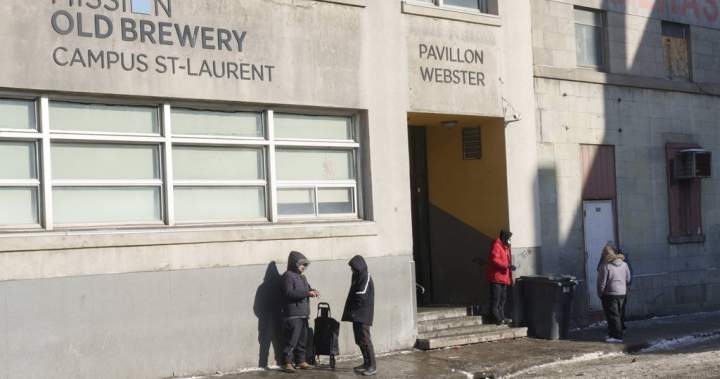A Montreal homeless shelter says it’s nearly doubling the number of apartments it can offer the unhoused thanks to a boost in funding from the city, part of a $2-million envelope split among four groups that develop below-market housing.
The Old Mission Brewery says it will receive $400,000, which will allow it to add 237 units to its housing stock by 2028.
“Some have already been bought and are under renovation, and some are in construction,” Jean-François Degenais, who oversees the Brewery’s rehousing program, said in a recent interview.
Between April 2024 and March 2025, the shelter offered housing to 100 people in units it owns directly or manages. “This is really going to help us grow, to increase our delivery capacity, and the quality of our organization as a pillar in the response to this crisis.”
The city issued a call for projects in June, and on Monday announced the four groups that have been chosen to split the $2 million. Montreal estimates that with this money, the groups can expand their operations to add roughly 6,300 units in the city that will be offered below market rates.
“We have many small organizations in Montreal that work to acquire buildings to get them off the (private) market, or that are developing new units,” said Luc Rabouin, mayor of the Plateau-Mont-Royal borough, who is running to replace Valérie Plante in November’s election to be mayor of Montreal. “In talking with them, we agreed that we needed to do more to help them grow.”

Get breaking National news
For news impacting Canada and around the world, sign up for breaking news alerts delivered directly to you when they happen.
Rabouin’s party, Projet Montréal, wants to see affordable housing take up 20 per cent of the city’s housing stock by 2050. Right now, affordable units — including co-ops and social housing — takes up about seven per cent, Rabouin said.
The $2 million won’t go directly toward building housing. Rather, he said, it will help the capacity of the four non-profits to develop and manage more units.
“We’ve mainly been inspired by what’s being done in Vienna, for example, in Europe,” said Rabouin, the lead on economic development on the city’s executive committee.
In Vienna, about 50 per cent of the population lives in some type of affordable housing, such as municipally managed apartments, or in subsidized flats.
Rabouin said if he’s re-elected, he hopes to raise the funding envelope next year to $5 million.
“I hope that this will continue in the future, regardless of which party is in power,” said Michel Taylor, president of the board for group Gérer son quartier, among the four that got the money. His organization received $500,000, which he says will allow it to double the number of units it currently owns — from roughly 1,000 to 2,000, over the next two years.
“It’s a necessity, and we can see that with what’s happening right now. People are ending up on the street, people are no longer able to pay rent.”
The two other groups that received money are Interloge Centre-Sud, which got $600,000, and Corporation Mainbourg, which received $500,000.
© 2025 The Canadian Press
Montreal says new housing fund will help create 6,300 non-market units in 10 years





